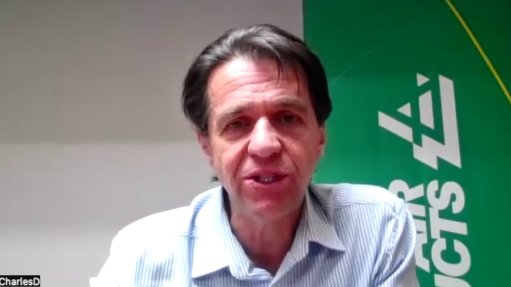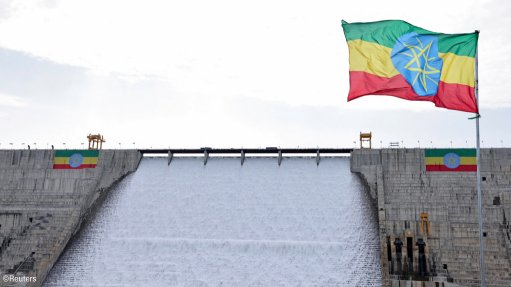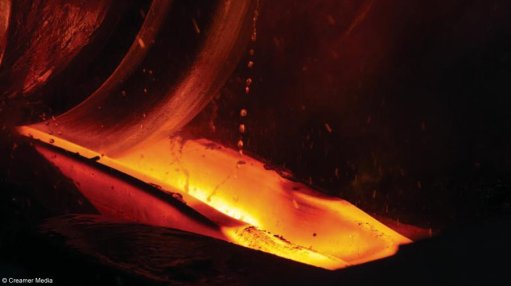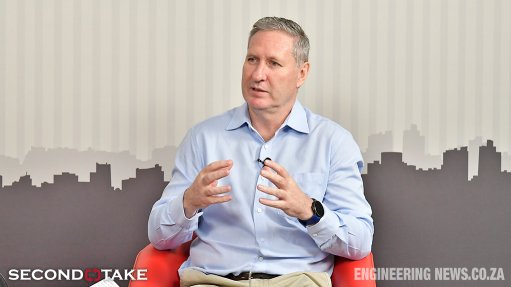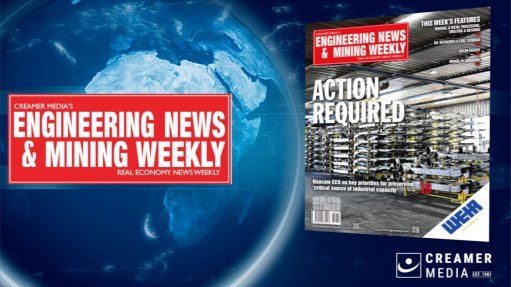AI must be sustainably embraced by mining sector – law firm

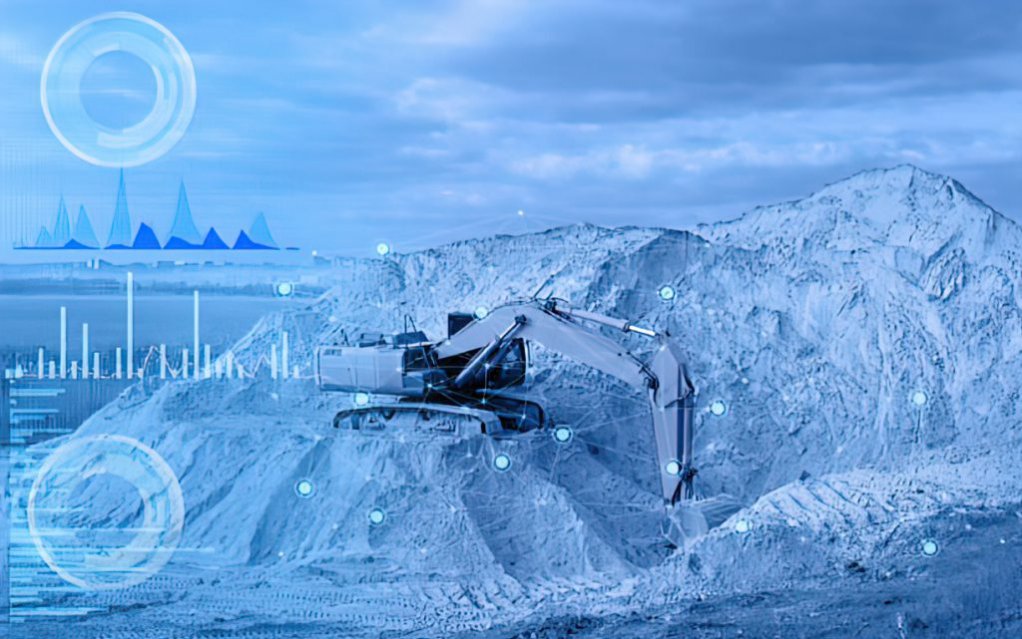

INTELLIGENT MINING The uptake of artificial intelligence could prove crucial to the sector in the future
PIETER COLYN It has become critical that collaborative efforts among industry stakeholders, governments and legal experts facilitate a conducive environment for positive disruption in mining
In an everchanging mining environment, it is crucial for the industry to approach technological advancements, especially artificial intelligence (AI), with a focus on sustainable development and positive disruption, says law firm ENS in the build-up to next month’s Investing in African Mining Indaba.
“Even though new technologies and AI offer serious benefits in terms of efficiency, these benefits can materialise only if proper due diligence and steps have been taken to implement these technologies in a responsible and ethical manner,” says ENS mine and occupational health and safety practice head Pieter Colyn.
The Indaba – to be held at the Cape Town International Convention Centre, from February 5 to 8 – will engage the theme ‘Embracing the power of positive disruption: A bold new future for African mining’.
Colyn says it has become critical that collaborative efforts among industry stakeholders, governments and legal experts facilitate a conducive environment for positive disruption in mining, ensuring long-term benefits for all parties involved.
Therefore, ENS hopes that the Indaba will positively address and facilitate discussions on responsible and sustainable mining practices, as well as cover the effects of positive disruptions in the sector.
“It is our hope that the Mining Indaba will encourage the responsible and ethical adoption of new technologies and AI so that the full benefits of these technologies can be harnessed,” he adds.
Positive disruption in mining involves adopting innovative technologies and smart mining practices to enhance efficiency, sustainability and health and safety, says ENS natural resources and environment head Ntsiki Adonisi-Kgame.
Notwithstanding the notion that the implementation of these technologies might upend traditional organisational models and trends, the objective is long-term sustainable operations, with the acceptance of short-term fundamental, albeit necessary, change, she explains.
This would include the integration of AI, automation and data analytics to optimise processes, reduce environmental impact and improve overall operational performance.
Embracing positive disruption signifies a proactive approach to leveraging technological advancements for the improvement of the mining industry.
On the Legal Side
Implementing new technologies and AI in mining introduces legal considerations regarding data privacy, cybersecurity, intellectual property and liability, says ENS mine and occupational health and safety executive Warren Hendricks.
Compliance with legislation and regulations, especially those concerning health and safety, as well as environmental standards, is crucial.
This should be considered from the perspective of not only a mine owner or employer, but also the original-equipment manufacturers (OEMs) and suppliers of such technology to a mine, he adds.
Further, from a health and safety perspective, the employer, OEMs and suppliers are obligated to identify and assess the hazards and risks associated with the introduction of such technology and AI at a mining operation.
“The use of new tech and AI may also affect mining companies’ social licence to operate, given the threat posed by new tech and AI to job security – particularly for unskilled workers,” Hendricks says.
To maintain its social licence to operate, mining companies will need to ensure that their nearby communities, as well as employees, continue to benefit meaningfully from mining-derived contributions.
“This will require ongoing engagements with all stakeholders,” he asserts.
In this regard, contractual agreements with technology providers and proper risk management strategies are essential to mitigate legal risks.
Should a mine procure third-party AI services, ENS recommends the mine properly vet its information technology transactional contract with the vendor to ensure that the mine retains ownership over any customised intellectual property development and limits its liability, while requiring the vendor to provide contractual levels of service.
These provisions will assist the mine in being covered during unplanned downtime of an AI system or the implementation of new technology.
“As with any system or functionality, careful consideration must be given to data privacy and cybersecurity,” says Hendricks.
As these technologies are often integrated into organisational systems and operationalised on commercial data and information, it is vital that technical and organisational safeguards, such as data segmentation and encryption, be implemented to prevent unlawful access and hacking, he elaborates.
On the Upside
While automation and AI may lead to job displacement in certain areas, they also create new job opportunities, says ENS natural resources and environment senior associate Zinzi Lawrence.
Skilled positions for managing and maintaining advanced technologies become essential, contributing to upskilling the workforce.
“However, companies should complete ethical impact assessments to determine the possible impacts of AI and other technologies before deployment,” she adds.
A company should carefully consider the extent to which the proposed technology or AI will automate jobs within the organisation, particularly how affected employees can be upskilled to use the new technology or AI, instead of retrenchments.
Lawrence concludes that mining companies should build on such frameworks in assessing the impact of disruptive technologies on job security, while regulators should monitor compliance and work together with mining companies to mitigate job losses.
Comments
Press Office
Announcements
What's On
Subscribe to improve your user experience...
Option 1 (equivalent of R125 a month):
Receive a weekly copy of Creamer Media's Engineering News & Mining Weekly magazine
(print copy for those in South Africa and e-magazine for those outside of South Africa)
Receive daily email newsletters
Access to full search results
Access archive of magazine back copies
Access to Projects in Progress
Access to ONE Research Report of your choice in PDF format
Option 2 (equivalent of R375 a month):
All benefits from Option 1
PLUS
Access to Creamer Media's Research Channel Africa for ALL Research Reports, in PDF format, on various industrial and mining sectors
including Electricity; Water; Energy Transition; Hydrogen; Roads, Rail and Ports; Coal; Gold; Platinum; Battery Metals; etc.
Already a subscriber?
Forgotten your password?
Receive weekly copy of Creamer Media's Engineering News & Mining Weekly magazine (print copy for those in South Africa and e-magazine for those outside of South Africa)
➕
Recieve daily email newsletters
➕
Access to full search results
➕
Access archive of magazine back copies
➕
Access to Projects in Progress
➕
Access to ONE Research Report of your choice in PDF format
RESEARCH CHANNEL AFRICA
R4500 (equivalent of R375 a month)
SUBSCRIBEAll benefits from Option 1
➕
Access to Creamer Media's Research Channel Africa for ALL Research Reports on various industrial and mining sectors, in PDF format, including on:
Electricity
➕
Water
➕
Energy Transition
➕
Hydrogen
➕
Roads, Rail and Ports
➕
Coal
➕
Gold
➕
Platinum
➕
Battery Metals
➕
etc.
Receive all benefits from Option 1 or Option 2 delivered to numerous people at your company
➕
Multiple User names and Passwords for simultaneous log-ins
➕
Intranet integration access to all in your organisation











